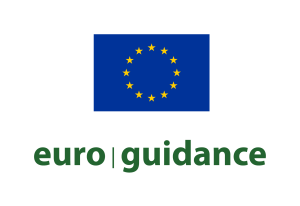Module 2: PLANNING STUDIES ABROAD
3. National support
 Different types of support are offered by the Nordic and Baltic countries for studies abroad:
Different types of support are offered by the Nordic and Baltic countries for studies abroad:
Denmark
For VET students: A national scheme for Work Placement Abroad (PIU) gives financial support to all Danish VET students, going on a work placement abroad. This covers work placements worldwide. For HE Students: The Danish state educational support (SU) can be awarded for a study period abroad if the Danish educational institution accepts the study period abroad as part of the current Danish study programme.
Estonia
The Education and Youth Authority (Harno) is a government agency of the Ministry of Education and Research that deals with the implementation of Estonian education and youth policy. The Department of Internationalisation coordinates different scholarship programmes, for example:
- Study and research related scholarships to study abroad (short study visits, exchange studies and degree studies abroad);
- Study and research related scholarships to study in Estonia (degree and exchange studies for foreign PhD and MA students; foreign academic staff; summer and winter schools);
- Scholarships for special-needs students and for young people raised in a substitute home or family;
- Scholarships in the smart specialisation growth areas (information and communication technologies, health technologies and services) and for teacher education;
- Programme “The academic studies of Estonian language and culture abroad”, which supports 10 lecturers teaching Estonian language in 10 universities worldwide and implements different scholarships related to teaching and studying Estonian language and culture.
Finland
The Social Insurance Institution of Finland - Kela offers financial aid for studies outside Finland if the studies correspond to a course of study in Finland that would qualify for financial aid, or if a period of study or job training abroad is part of a course of study, which is being completed in Finland. The study programme must be full-time. Studies at an institute of higher education can be considered full-time studies if at least 5 credits of studies are completed per month. Other types of studies can also be considered full-time studies if the extent of the studies is at least 25 hours per week.
Iceland
The Icelandic Study Fund offers subsidised study loans to all university students, whether studying nationally or abroad. This means that the loans are inflation guaranteed but do not carry interests. If the student completes his/her studies in the time period planned by the university, 30% of the loan is turned into a grant. The minimum study period for this is two semesters and the ECTS credits must be at least 60. Further information (in Icelandic).Latvia
As of spring 2020 the Latvian government is no longer subsidising loans for studies abroad. Students are advised to apply for financial aid at their host university. Government scholarships for certain types of studies in a limited number of countries are available through annual competitions run by either embassies or the State Education Development Agency.
Lithuania
Education Exchanges Support Foundation, a government agency, administrates the State Scholarship Programme, which is supported by the Republic of Lithuania. Students of Lithuanian higher education and research institutions can apply for the following scholarships under the State Scholarship Programme:
- Short-term doctoral studies (the support includes a monthly scholarship, travel allowance and a grant for tuition fee);
- Travel allowance for students going on mobility programmes (the list of mobility programmes is approved by the Minister of Education, Science and Sport);
- International internships in Lithuanian schools or communities abroad.
For more information, please visit the Stipendijos.lt website (in Lithuanian).
NorwayThe State Educational Loan Fund, Norway (Lånekassen) is a government agency that allocates loans and grants to Norwegian and certain foreign students for their education. Lånekassen is organised under the Ministry of Education and Research (Kunnskapsdepartementet).
Lånekassen provides grants and loans to pupils and students in Norway, both in college and in higher degrees. For students in upper secondary education, you must receive a pre-approval from your local school to be eligible for grants or loan. In higher education, you can receive support for education at university or university college level, for both shorter and full degrees abroad.
There are also a number of national initiatives aimed at specific countries or specific professions, you can find more information at Diku, the directorate for internationalisation and quality enhancement in Higher Education.
SwedenThe Swedish Board of Student Finance (CSN) is a government agency that manages Swedish student finance, i.e. grants and loans for studies. Students can apply for student grants and loans when studying abroad at post-secondary level. They can also apply for student aid for education at upper secondary level (e.g. language courses), but only from the autumn semester in the year in which they turn 20. Students have to pay back the loan, but may choose to apply for the grant portion only. As the cost of living and accommodation may be higher abroad, it is possible to apply for an extra loan known as an additional loan for studies abroad.
**
